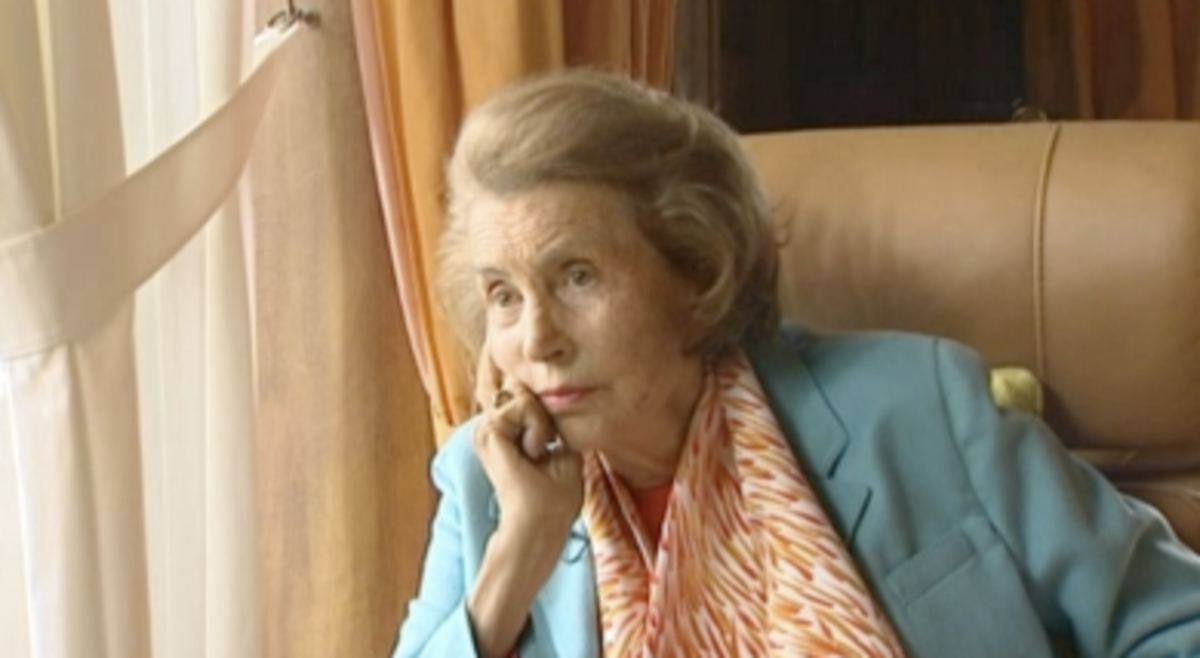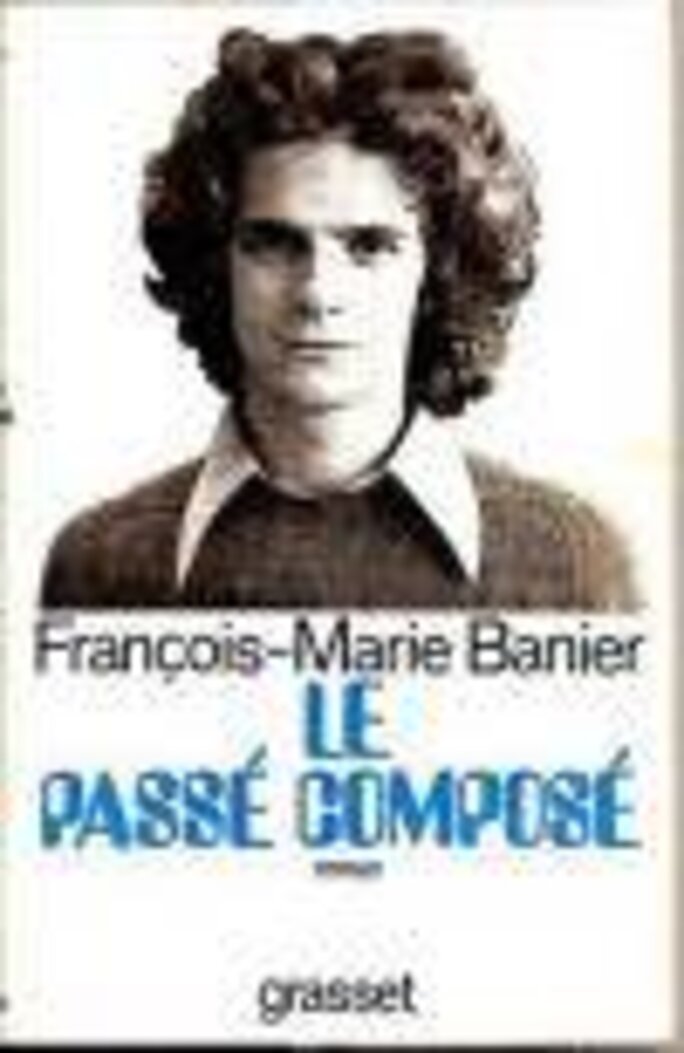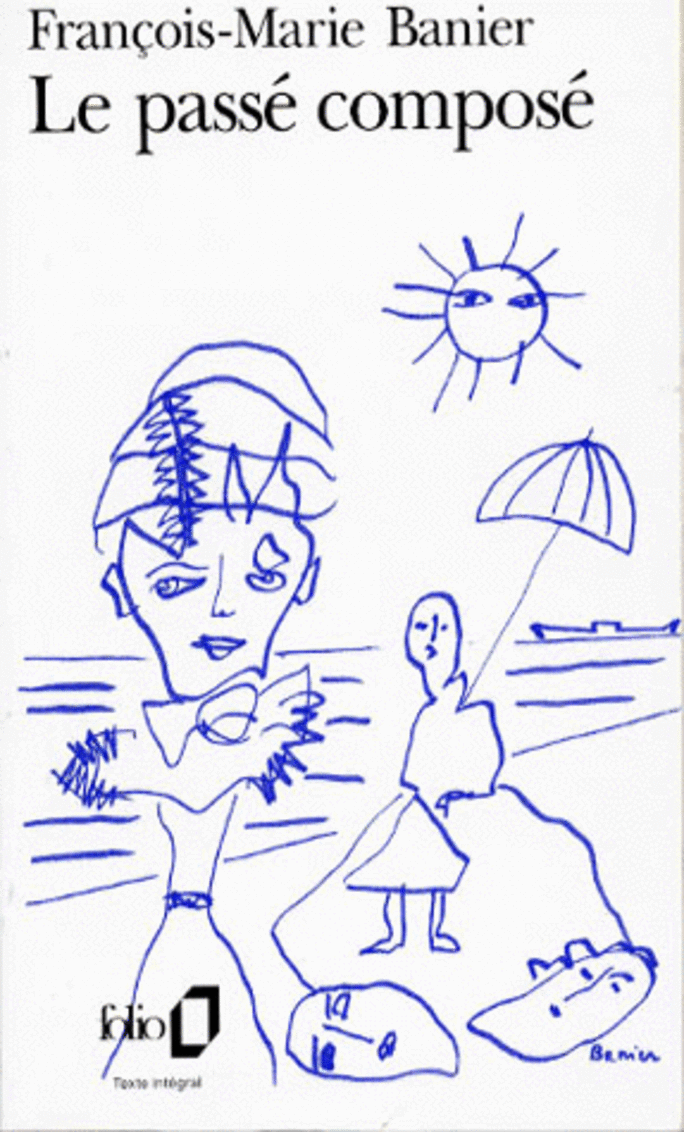François-Marie Banier is the celebrity photographer, painter, novelist and socialite at the heart of the scandal surrounding L'Oréal heiress and multi-billionaire Liliane Bettencourt. Over a period of years, the matriarch gifted him with almost one billion euros in cash, insurance policies and artworks. Banier is the target of a law suit filed by 88 year-old Liliane's daughter and only child, Françoise Bettencourt-Meyers, who accuses him of acquiring the fortune by exploiting the mental frailty of her mother. Here, Antoine Perraud studies the eerie similarities between the scandal and the plot of a book by Banier that was published in...1971.
Banier is a dandy who chases inspiration. He is driven by an ebullience that he distributes around different art forms. He is rich in a dexterity which he uses to spice his existence. Oscar Wilde's confession, "I put all my genius into my life; I put only my talent into my works", could well apply to him.
He published his first novel, Les Résidences Secondaires ou La Vie Distraite, (Second Homes, Or A Life of Fun1) in 1969, when he was just 22. He was hailed as a prodigy and compared with French writer Raymond Radiguet.
Two years later he published another book, Le Passé Composé (The Perfect Tense), which could for all the world be the Bettencourt affair in the future perfect tense. Re-reading it now, almost 40 years after it was penned, is like discovering a thinly-disguised road map of the scandal currently rattling French President Nicolas Sarkozy and his government, a time-bomb in a tale that contains the antecedents of the whole affair.

Liliane's Bettencourt's mansion home is in Neuilly, a suburb west of Paris, at a spot close to the Bois de Boulogne park. In Banier's book, readers are transplanted to a corner of the Bois de Boulogne and the luxurious habitat of Monsieur and Madame Lasserre. The husband owns a printing firm, as did Lilane Bettencourt's brother-in-law, Pierre Bettencourt, in real life: "He looks at his house. It really is a beautiful house. He would not have wanted to live anywhere else but in Neuilly. Neuilly Saint-James2, of course! The Lasserres had lived there quietly, envied by many. They were envied because they were in harmony with each other."
Did François-Marie Banier, now 63, know a member of the Bettencourt family in 1971, when Le Passé Composé was published, with André Bettencourt, for example, portrayed as Monsieur Lasserre? Or did he fictionalise a future reality like a demiurge, giving form to an unconscious vision, and just happen to hit the bulls-eye?
His lawyer, Laurent Merlet, told Mediapart: "Based on what my client has always said, he met the Bettencourts socially at the Lazareffs'3 house in 1969. Their friendship would not become truly close until he photographed Liliane Bettencourt for the magazine Égoïste in 1987."
The book continues with holidays in Brittany in a residence redolent of Arcouest, the villa with columns that Liliane Bettencourt had inherited from her father, Eugène Schueller, the founder of L'Oréal: "This vast mansion was like no other," wrote Banier. "It had no particular style; let us say, like the villagers, that it was Baroque; it was the last house before the beach, three storeys on stilts."

Madame Lasserre, who was not someone who relished solitude, quickly gets bored with being there without her husband, who has stayed in Neuilly: "Read Proust? Certainly not, she had kept that for later, for when she gets old or is paralysed."
She is not a very maternal woman, and a diatribe in a fashion magazine by an expert arguing against overprotecting ones children sets her free: "You will make them impotent or sadistic, you will turn them into masochists, criminals, homosexuals, or possibly even artists!" So Madame unsentimentally leaves her son and daughter there.
Rue de Rivoli, par François-Marie Banier
Du même: au jardin du Luxembourg
-------------------------
1: Titles of François-Marie Banier's books and extracts from 'Le Passé Composé' in English have been translated by Mediapart.
2: Saint-James is one of the most sought-after neighbourhoods in Neuilly, the affluent Paris suburb where Liliane Bettencourt lives.
3: Pierre Lazareff was a French press proprietor, founder of French newspaper France Soir, and a television producer.
'François had played his hand using trust'
Then follows an interlude with echoes of Jean Cocteau's Les Enfants Terribles. François-Marie Banier, haunted by the theme of the double, and by the transgression of hazy, shaky boundaries in the exquisite pain of sensuality, drives the story towards incest: "He had tasted his sisters lips as if they were his own. A taste of himself, as if biting his own hand, like when you touch your own body."
The brother throws himself into the sea and drowns, leaving the daughter an only child. Back in Neuilly, the daughter, Cécile, "plays the piano. She hits the keys too hard, you would say she was drunk, but it doesn't matter." For the record, in real life, Françoise Bettencourt Meyers, Liliane Bettencourt's daughter, practices The Well-Tempered Clavier with ardour.
The relationship with the mother is portrayed as fraught, but Banier turns it around: "Madame Lasserre cannot understand everything, but it is not her fault, Cécile never confided in her. She couldn't, she would never allow herself to."

The hero of the novel, who could be the author's double, is called François, and he ingratiates himself into the locked, bolted and barred Neuilly cocoon. He would go on to blithely shake up this sepulchre: "François would take over the conversation. He would tell stories about the printing works, and everyone would be happy. Well, everybody... not really! But it would surely please Monsieur Lasserre." The key to a successful incursion: aim for the familys weakest link, and unexpectedly, in this case, it is the father.
François marries the daughter of the family, but quickly becomes tired of her and turns to his father-in-law. The same tentacular interference found in literature and cinema, from Molière's Tartuffe to Pasolini's Teorema, permeates the book. "François had played his hand using trust. He had rejuvenated Lasserre: here was a 25-year-old youth seeking his advice. Through François, Lasserre gained in stature within his own family."
Given a choice between his daughter and François, the father prefers François: "I am very fond of Cécile, but even without her, I would have loved you (...) At the dinner table, Monsieur Lasserre said nothing. François and he had already told each other everything in their study, even more than Cécile suspected (...) Monsieur Lasserre placed his hand on François' shoulder and said to him: 'Before we knew you, things were hard. Very hard. Believe me'."
The plan is to become indispensable, then take possession by dispossessing. This psychological play is not lost on the daughter, and she is revolted by it. She confronts François: "Now everyone trusts you. I must say you really have pulled the wool over their eyes as well. You have made fools of everyone. Fine. Even so, I pity you. You will be trapped by everything you hoped to gain for your entire life (...) As long as I am alive, you wont get away with it."
Then, moving from the formal "vous" form of address to "tu", more familiar, which is extremely rude in this social class, denoting a lack of respect, she continues: "Now I've got wind of what you're up to, I'm going to be on your back. Ill be watching you and keeping an eye on you and I'll take action. I know your ways. You wont get away from me."
Four pages later the dispossessed daughter gives vent to a final outburst of prophetic rage: "You really ought to go into my parents' bedroom, they aren't asleep yet. Go in and see them, be with them. Undress in their bedroom and show yourself naked in front of them. And as an aside, ask the time. They'll look at you. They have nothing to lose. Nor do you. They may ask you to sleep with them, and who knows what else. Wouldnt you like that? Between them?"
François-Marie Banier: «Lying all morning» (2001)
For the record, in a staement given by Liliane Bettencourt's former secretary, Christiane Djenane, to Isabelle Prévost-Desprez, the examining magistrate investigating the case brought against Banier by Françoise Bettencourt Meyers, she testified: "For example, François-Marie Banier would go directly up to Madame Bettenourt's bedroom without being announced, and would lie on her bed, and above all, he would talk at the top of his voice."
' Widowed, she will lose her reason and he will take her wherever he wants to'
The opening scene in Le Passé Composé is not sexual but devilishly predatory: "He came to Neuilly for the first time, to the Lasserres' house. He had thought about it. He must not seem too enthusiastic. But he did not want to seem too shy either. That was not his style. He wanted to please quickly, but not too quickly, so as not to spoil things (...) Before knocking on the Laserres' door, François went for a walk in the Bois de Boulogne, maybe for half an hour. He looked at the big trees. One day, he would have a house with grounds around it, all for him. The people passing by did not know this. They did not know that one day this young man walking will have a big house with big grounds. They did not know that he will be rich."
The plan was to harpoon this opulence: "His car, the house in Neuilly, his things, his money. And they have money the way one should have money: they don't pay it any attention." And he muses about making them wait.
Of course, "at that time the Lasserres presented an ideal opportunity for gaining influence over anyone, anything". But he could not run the risk of failure: "François had noticed that in the past, when he played tennis with an opponent who was not quite as good as him, if at first he made it look as if he was losing, on purpose, only to win a more spectacular victory later, often it happened that he would be unable to make up the lost ground and in the end the loser would be him. So why take that risk with the Lasserres? Why waste time?"
François-Marie Banier: «Boulevard Raspail» (2005)
François observes his next, ultimate prey: "Madame Lasserre has a way of talking about nothing but on her lips it passes for something more significant." He gauges her weaknesses: "They talk about the weather. She tells him she likes all weathers as long as her husband is with her. Madame Lasserre cannot bear to be alone. One day, when she becomes a widow, she will lose her reason, and he will take her wherever he wants to."

In 1994, when Le Passé Composé was published in paperback, François-Marie Banier did already know the Bettencourts. He was persona grata in their houses in Brittany and Neuilly. The cover of the new edition (pictured left) was illustrated with one of the authors own drawings. It depicts - and this is not an over-interpretation - a sun with eyes that look down on the hero, who is on a beach, drunk with his own impunity. The daughter of the family, who has the shaved head of a woman humiliated after the Nazi occupation, drags two kites with faces like parents, reduced to the status of masks, which lie on the ground like idols overturned by an all-powerful, blithe and carnivorous presence.
English version: Sue Landau


